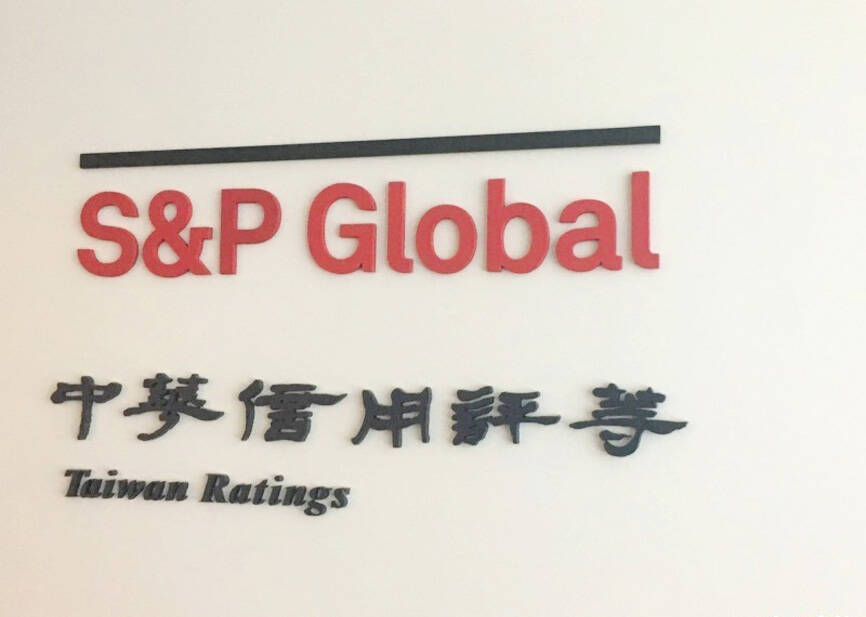Taiwan’s corporate bond issuance this year has hit a seven-year low, as companies scale back offerings on expectations that local interest rates have peaked and could move lower.
Taiwanese companies issued US$533 million of New Taiwan dollar bonds last month, a third of the total a year earlier, Bloomberg-compiled data shows. Total issuance from January to last month fell to US$9.02 billion, the lowest level since 2017.
Those numbers do not include life insurers, which have issued a record number of subordinated bonds to meet capital requirements and have attracted buyers with the notes’ higher-than-average yields.

Photo: Wu Chia-ing, Taipei Times
The broader slowdown contrasts with the bond market bonanza seen in most of the rest of Asia, where issuance has surged on increasing appetite for yield. Taiwan’s interest rates sit at a 16-year high of 2 percent, making nonfinancial firms reluctant to issue bonds.
“Companies take account of global market conditions when making capital and cost allocations,” Hua Nan Securities (華南永昌證券) fixed income trader Sam Chang said.
As the Federal Reserve and other central banks start looking toward policy easing, companies are waiting to see if those decisions would also influence Taiwan, he added.
Also potentially denting investor demand are the subordinated bonds issued by insurers.
Domestic bond investors have allocated a lot of capacity to bonds issued by Taiwanese life insurers, so that could also have some implications on demand, Taiwan Ratings Corp (中華信評) senior director Andy Chang (張書評) said.
With the timing of any rate cut in Taiwan uncertain, some companies are seeking out alternative funding routes, such as bank loans and commercial paper.
Commercial paper issued by Taiwanese companies rose 15 percent in the first six months of the year to NT$10.4 trillion (US$317 billion), compared with the same period last year, central bank data showed.
“For bank loans, large corporates have nice bargaining power as the banking environment is quite competitive,” Andy Chang said.
Commercial paper comes in shorter tenors, providing cheaper costs under the current yield curve, he added.

SEEKING CLARITY: Washington should not adopt measures that create uncertainties for ‘existing semiconductor investments,’ TSMC said referring to its US$165 billion in the US Taiwan Semiconductor Manufacturing Co (TSMC, 台積電) told the US that any future tariffs on Taiwanese semiconductors could reduce demand for chips and derail its pledge to increase its investment in Arizona. “New import restrictions could jeopardize current US leadership in the competitive technology industry and create uncertainties for many committed semiconductor capital projects in the US, including TSMC Arizona’s significant investment plan in Phoenix,” the chipmaker wrote in a letter to the US Department of Commerce. TSMC issued the warning in response to a solicitation for comments by the department on a possible tariff on semiconductor imports by US President Donald Trump’s

‘FAILED EXPORT CONTROLS’: Jensen Huang said that Washington should maximize the speed of AI diffusion, because not doing so would give competitors an advantage Nvidia Corp cofounder and chief executive officer Jensen Huang (黃仁勳) yesterday criticized the US government’s restrictions on exports of artificial intelligence (AI) chips to China, saying that the policy was a failure and would only spur China to accelerate AI development. The export controls gave China the spirit, motivation and government support to accelerate AI development, Huang told reporters at the Computex trade show in Taipei. The competition in China is already intense, given its strong software capabilities, extensive technology ecosystems and work efficiency, he said. “All in all, the export controls were a failure. The facts would suggest it,” he said. “The US

The government has launched a three-pronged strategy to attract local and international talent, aiming to position Taiwan as a new global hub following Nvidia Corp’s announcement that it has chosen Taipei as the site of its Taiwan headquarters. Nvidia cofounder and CEO Jensen Huang (黃仁勳) on Monday last week announced during his keynote speech at the Computex trade show in Taipei that the Nvidia Constellation, the company’s planned Taiwan headquarters, would be located in the Beitou-Shilin Technology Park (北投士林科技園區) in Taipei. Huang’s decision to establish a base in Taiwan is “primarily due to Taiwan’s talent pool and its strength in the semiconductor

French President Emmanuel Macron has expressed gratitude to Hon Hai Precision Industry Co (鴻海精密) for its plan to invest approximately 250 million euros (US$278 million) in a joint venture in France focused on the semiconductor and space industries. On his official X account on Tuesday, Macron thanked Hon Hai, also known globally as Foxconn Technology Group (富士康科技集團), for its investment projects announced at Choose France, a flagship economic summit held on Monday to attract foreign investment. In the post, Macron included a GIF displaying the national flag of the Republic of China (Taiwan), as he did for other foreign investors, including China-based